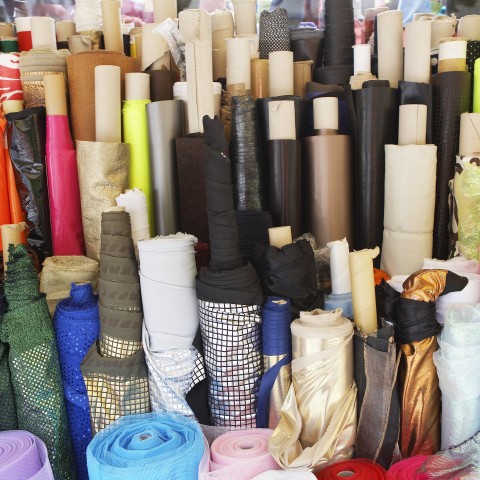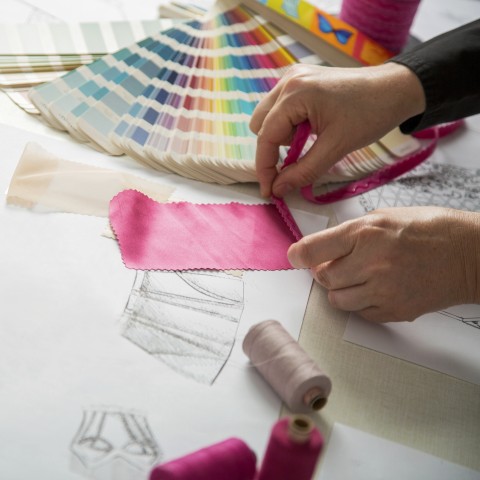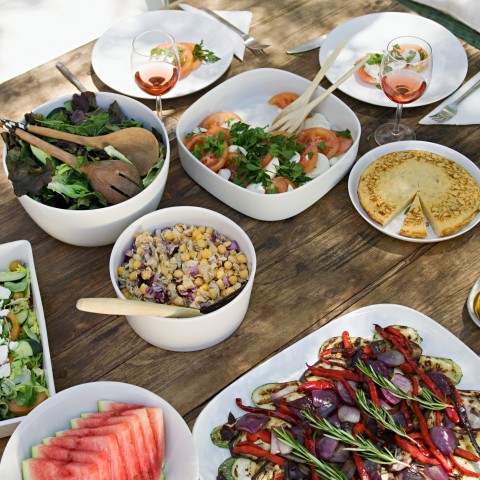
If you’ve been studying Hindi with us for a while and are familiar with the basics of the Hindi language, it’s probably time to level up. And by this, we mean learning and practicing the most important intermediate Hindi words.
- → Of course, if you’re a newcomer or are feeling a bit less confident, we recommend starting with our lesson on beginner words in Hindi!

What should you learn at the intermediate level?
In this article, we have listed for you the most common intermediate Hindi words. We’ve included words belonging to a variety of categories and different parts of speech.
So, let’s get started.
 Table of Contents
Table of Contents
- Learning intermediate Hindi words is sooo important!
- Larger Numbers and Related Terms
- Nouns
- Colors
- Verbs
- Adjectives
- Adverbs
- Prepositions
- Conjunctions
- What does HindiPod101.com have to offer you?
1. Learning intermediate Hindi words is sooo important!
You can’t just limit yourself to the most basic Hindi words, can you? At some point, every learner needs to explore and practice the next-level vocabulary. Doing so will make you more confident, help you sound more like a native speaker, and also provide you with the linguistic tools you need to get better at dealing with Hindi-speaking folks.
The Hindi word for “intermediate” is मध्यवर्ती (maDHyavarTii) or मध्यम (maDHyam). The simpler term is बीच का (biic kaa), which means “the middle.”
Mastering this list will also take your intermediate Hindi grammar up a notch, as we’ve included lots of adjectives, adverbs, nouns, and verbs to give you sound exposure to the language as a whole.
2. Larger Numbers and Related Terms
In our article on beginner words, we introduced you to the basic numbers 1-10 in Hindi. (For a more comprehensive read, you can also check out our blog post on Hindi numbers.) Now that you’re approaching the intermediate level in Hindi, it’s time to start learning the names of larger numbers and related terms.
- “Eleven” —————————————-> ग्यारह (gyaarah)
- “Twelve” —————————————-> बारह (baarah)
- “Thirteen” ————————————–> तेरह (Terah)
- “Fourteen” ————————————-> चौदह (cauDah)
- “Fifteen” —————————————-> पंद्रह (paNDrah)
- “Sixteen” —————————————> सोलह (SoLah)
- “Seventeen” ———————————–> सत्रह (SaTrah)
- “Eighteen” ————————————-> अट्ठारह (atthaarah)
- “Nineteen” ————————————-> उन्नीस (uNNiiS)
- “Lakh” ——————————————> लाख (Laakh)
- “Ten Lakhs” ———————————–> दस लाख (DaS Laakh)
- “Table” ——————————————> पहाड़ा (pahaadaa)
- “Counting” ————————————-> गिनती (giNaTii)
- “Multiplication” ——————————–> गुणा (gunaa)
- “Division” —————————————>भाग (bhaag)
- “Addition” ————————————–> जोड़ (jod)
- “Subtraction” ———————————-> घटाना (ghataaNaa)
- “Percentage” ———————————-> प्रतिशत (praTisaT)

Large Numbers in Hindi
3. Nouns
Can you even imagine a language lesson without nouns? That’s right. When talking about parts of speech, nouns top the list. So, here we are with plenty of intermediate Hindi nouns for you. Let’s dig in!
1 – Geographical Areas
Given that we have so many physical boundaries, it’s important to know the appropriate Hindi words for talking about them! Learning these words will absolutely help you in any political or general discussion as well.
- “City” / “Town” ———————————> शहर (sahar)
- “Metropolitan” ——————————-> महानगर (mahaaNagar)
- “Village” —————————————> गाँव (gaanv)
- “State” —————————————–> प्रदेश (praDes)
- “Country” ————————————-> देश (Des)
- “Abroad” ————————————–> विदेश (viDes)
- “Continent” ———————————–> महाद्वीप (mahaaDviip)
- “Sub-continent” —————————–> उपमहाद्वीप (upamahaaDviip)
- “Island” —————————————-> द्वीप (Dviip)
- “National” ————————————-> राष्ट्रीय (raastriiy)
- “International” ——————————-> अंतरराष्ट्रीय (anTararaastriiy)
2 – Clothes and Fabrics
We all love to put on different types of clothes, and we each have a liking for particular fabrics. So why not learn their names in Hindi and impress your friends with your superb vocab?

Do you have dresses in silk?
- “Cotton” ————————————–> सूती (SuuTii) or कपास (kapaaS)
- “Wool” —————————————-> ऊन (uuN)
- “Silk” ——————————————> रेशम (resam)
- “Leather” ————————————-> चमड़ा (camadaa)
- “Socks” —————————————> मोज़े (moze)
- “Shoes” —————————————> जूते (juuTe)
- “Handkerchief” ——————————> रुमाल (ruumaaL)
- “Shirt” —————————————–> कमीज़ (kamiiz)
- “Coat” —————————————–> कोट (kot)
- “Pants” —————————————–> पतलून (paTaLuuN)
- “Tie” ——————————————-> टाई (taaii)
- “Hat” ——————————————> टोपी (topii)
- “Frock” —————————————> फ़्रॉक (frauk)
- “Saree” —————————————> साड़ी (Saadii)
- “Salwar-kameez” ————————–> सलवार-कमीज़ (SaLavaar-kamiiz)
- “Skirt” —————————————–> स्कर्ट (skart)
- “Glove” —————————————> दस्ताना (DaSTaaNaa)
- “Muffler” ————————————–> मफ़लर (mafaLar)
3 – Professions
When talking to friends, colleagues, or even relatives, it’s natural to discuss each other’s jobs and careers. Imagine mesmerizing your friends next time the topic comes up by using the proper Hindi word to describe your profession! How cool would that be? And don’t worry about being perfect. When it comes to what you do, using just a single Hindi word will be enough to impress the other party.
- “Teacher” ——————————> अध्यापक (aDHyaapak) – m. / अध्यापिका (aDHyaapikaa) – f.
- “Student” ——————————> छात्र (chaaTr) – m. / छात्रा (chaaTraa) – f.
- “Principal” —————————-> प्रधानाध्यापक praDHaaNaaDHyaapak) m./ प्रधानाध्यापिका (praDHaaNaaDHyaapikaa) – f.
- “Farmer” ——————————-> किसान (kiSaaN)
- “Shopkeeper” ————————> दुकानदार (DukaaNaDaar)
- “Greengrocer” ————————> फलवाला (phaLavaaLaa)
- “Vegetable seller” ——————-> सब्ज़ीवाला (SabziivaaLaa)
- “Maid” ———————————> बाई (baaii)
- “Peon” ———————————-> चपरासी (caparaaSii)
- “Watchman” ————————–> चौकीदार (caukiiDaar)
- “Washerman” ————————-> धोबी (DHobii)
- “Washerwoman” ———————> धोबिन (DHobiN)
- “Butcher” ——————————> कसाई (kaSaaii)
- “Goldsmith” —————————> सुनार (SuNaar)
- “Blacksmith” —————————> लोहार (Lohaar)
- “Carpenter” —————————-> बढ़ई (badhaii)
- “Tailor” ———————————> दर्ज़ी (Darzii)
- “Hunter” ——————————–> शिकारी (sikaarii)
- “Judge” ———————————> न्यायाधीश (NyaayaaDHiis)
- “Lawyer” ——————————–> वक़ील (vaqiiL)
- “Doctor” ———————————> चिकित्सक (cikiTSak) – m. / चिकित्सिका (cikiTSikaa) – f.
- “Vet” ————————————-> पशु-चिकित्सक (pasu-cikiTSak) – m. /
पशु-चिकित्सिका (pasu-cikiTSikaa) – f. - “Typist” ———————————> टाइपिस्ट (taaipiSt)
- “Nurse” ———————————> उपचारिका (upacaarikaa)
- “Scientist” ——————————> वैज्ञानिक (vaigyaaNik)
- “Astronaut” —————————-> अंतरिक्ष यात्री (aNTariks yaaTrii)
- “Dancer” ——————————-> नर्तक (NarTak) / नर्तकी (NarTakii)
- “Postman” —————————–> डाकिया (daakiyaa)
- “Soldier” ——————————-> सिपाही (Sipaahii)
- “Police” ——————————–> रक्षक (raksak) / पुलिस (puLiS)
- “Sportsperson” ———————–> खिलाड़ी (khiLaadii)
- “Athlete” ——————————–> धावक (DHaavak) – m. / धाविका (DHaavikaa) – f.
- “Swimmer” —————————–> तैराक़ (Tairaaq)
- “Barber” ——————————–> नाई (Naaii)
- “Painter” (artist) ———————-> चित्रकार (ciTrakaar)
- “Painter” ——————————-> पुताई वाला/वाली (puTaaii vaaLaa/vaaLii)
- “Chef” ———————————–> बावर्ची (baavarcii)
- “Waiter” ———————————> बैरा (bairaa)
- “Writer” ———————————-> लेखक (Lekhak) – m. / लेखिका (Lekhikaa) – f.
- “Poet”/ “Poetess” ———————> कवि (kavi) – m. / कवयित्री (kavyiTrii) – f.
- “Actor”/ “Actress” ———————> अभिनेता (abhiNeTaa) – m. / अभिनेत्री (abhiNeTrii) – f.
- “Singer” ——————————–> गायक (gaayak) – m. / गायिका (gaayikaa) – f.
- “Musician” ——————————> संगीतकार (SangiiTkaar)
- “Detective” —————————–> जासूस (jaaSuuS)
- “Officer” ———————————> अफ़सर (afaSar) or अधिकारी (aDHikaarii)
- “Leader” ——————————–> नेता (NeTaa) m. / नेत्री (NeTrii) – f.
- “Politician” ——————————> राजनेता (raajaNeTaa) m. / राजनेत्री (raajaNeTrii) – f.
- “Journalist” —————————–> पत्रकार (paTrakaar)
- “Engineer” ——————————> इंजीनियर (injiiNiyar)
- “Pilot” ————————————> विमान चालक (vimaaN caaLak) m. /
विमान चालिका (vimaaN caaLikaa) – f.

So, what do you do?
4 – Subjects
If you’re attending university in India, you might want to let your peers know what subject(s) you’re studying. Here’s a quick list of common school subjects in Hindi.
- “Mathematics” ——————————–> गणित (ganiT)
- “Science” ————————————–> विज्ञान (vigyaaN)
- “Biology” —————————————> जीव विज्ञान (jiiv vigyaaN)
- “Zoology” ————————————–> प्राणि विज्ञान (praanii vigyaaN)
- “Botany” —————————————> वनस्पति विज्ञान (vaNaSpaTi vigyaaN)
- “English” —————————————> अंग्रेज़ी (angrezii)
- “Hindi” ——————————————> हिंदी (hiNDii)
- “Moral science” ——————————> नैतिक विज्ञान (NaiTik vigyaaN)
- “Home science” ——————————> गृह-विज्ञान (grih-vigyaaN)
- “History” —————————————-> इतिहास (iTihaaS)
- “Geography” ———————————-> भूगोल (bhuugoL)
- “Law” ——————————————-> क़ानून (qaaNuuN)
- “Psychology” ———————————> मनोविज्ञान (maNovigyaaN)
- “Economics” ———————————-> अर्थशास्त्र (arthasaaSTra)
5 – Geographical Features
Maybe you’re sitting in a place full of greenery, visiting a friend who lives in a hilly region, or having a date with someone at a restaurant near the river bank. Or, on a more serious note, perhaps you’re discussing climate change with your friends or colleagues. Whatever your situation, the intermediate Hindi words listed below are sure to help you out!
- “River” ——————————————> नदी (NaDii)
- “Pond” ——————————————> तालाब (TaaLaab)
- “Canal” —————————————–> नहर (Nahar)
- “Sea” ——————————————–> सागर (Saagar)
- “Ocean” —————————————-> महासागर (mahaaSaagar)
- “Desert” —————————————-> रेगिस्तान (regiSTaaN)
- “Sand dunes” ———————————> रेत के टीले (reT ke tiiLe)
- “Mountain” ————————————-> पहाड़ (pahaad)
- “Cloud” —————————————–> बादल (baaDaL)
- “Sky” ——————————————–> आसमान (aaSamaaN)
- “Valley” —————————————–> घाटी (ghaatii)
- “Forest” —————————————-> जंगल (jangaL)
- “Thunderstorm” ——————————> तूफ़ान (TuufaaN)
- “Lightning” ————————————> बिजली (bijaLii)
- “Snow” —————————————–> बर्फ़ (barf)

Beautiful Mountains and Rivers
6 – Metals and Nonmetals
These are the names of different types of metals and nonmetals in Hindi.
- “Iron” ———————————————> लोहा (Lohaa)
- “Steel” ——————————————-> इस्पात (iSpaaT)
- “Glass” ——————————————-> काँच (kaanc)
- “Brass” ——————————————-> पीतल (piiTaL)
- “Copper” —————————————–> तांबा (Taambaa)
- “Aluminum” ————————————-> अल्मुनियम (aLmuNiyam)
- “Plastic” ——————————————> प्लास्टिक (pLaaStik)
- “Silver” ——————————————-> चांदी (caanDii)
- “Gold” ——————————————–> सोना (SoNaa)
- “Diamond” ————————————–> हीरा (hiiraa)
- “Platinum” ————————————–> प्लैटिनम (pLaitiNam)
7 – Around the House
You’ll need these words more often than you think! Learning the names of rooms, fixtures, and common items around the house will allow you to talk in greater detail about your daily routine.
- “Door” ——————————————-> दरवाज़ा (Daravaazaa)
- “Window” —————————————> खिड़की (khidakii)
- “Room” —————————————–> कमरा (kamaraa)
- “Bedroom” ————————————-> शयनकक्ष (sayaNakaks)
- “Bathroom” ————————————> स्नानघर (SNaaNaghar)
- “Study room” ——————————–> अध्ययन कक्ष (aDHyayaN kaks)
- “Kitchen” —————————————> रसोईघर (raSoiighar)
- “Courtyard” ————————————> आंगन (aangaN)
- “Corridor” ————————————–> बरामदा (baraamaDaa)
- “Fan” ——————————————–> पंखा (pankhaa)
- “Table” ——————————————> मेज़ (mez)
- “Drawer” —————————————> दराज़ (Daraaz)
- “Chair” ——————————————> कुर्सी (kurSii)
- “Bed” ——————————————–> बिस्तर (biSTar)
- “Pillow” —————————————–> तकिया (Takiyaa)
- “Pillow cover” ——————————–> गिलाफ़ (giLaaf)
- “Bed sheet” ———————————-> चादर (caaDar)
- “Blanket” —————————————> कंबल (kambaL)
- “Quilt” ——————————————-> रज़ाई (razaaii)
- “Almirah” —————————————> अलमारी (aLamaarii)
- “Dressing table” —————————–> श्रृंगारदान (sringaaraDaaN)
- “Dining table” ——————————–> खाने की मेज़ (khaaNe kii mez)
- “Stove” —————————————–> चूल्हा (cuuLhaa)
- “Utensils” ————————————–> बर्तन (barTaN)
- “Medicine” ————————————-> दवा (Davaa)
- “Perfume” ————————————–> इत्र (iTr)
- “Comb” —————————————–> कंघी (kanghii)
- “Soap” ——————————————> साबुन (SaabuN)
- “Shampoo” ————————————> शैम्पू (saimpuu)
- “Bucket” —————————————-> बाल्टी (baaLtii)
4. Colors
What pops into your head when you think of the word “color”? Is it a shade of black or white, or something silver or golden? Keep reading to learn the name of your favorite color in Hindi.

Oh, I like this pink!
- “White” —————————————-> सफ़ेद (SafeD)
- “Black” —————————————-> काला (kaaLaa)
- “Blue” ——————————————> नीला (NiiLaa)
- “Red” ——————————————> लाल (LaaL)
- “Orange” ————————————–> नारंगी (Naarangii)
- “Green” —————————————-> हरा (haraa)
- “Yellow” —————————————-> पीला (piiLaa)
- “Purple” —————————————-> बैंगनी (baingaNii)
- “Brown” —————————————-> भूरा (bhuuraa)
- “Pink” ——————————————-> गुलाबी (guLaabii)
- “Sky blue” ————————————-> आसमानी नीला (aaSamaaNii NiiLaa)
- “Golden” —————————————> सुनहरा (SuNahraa)
- “Gray” ——————————————-> सलेटी (SaLetii) or धूसर (DHuuSar)
5. Verbs
In our previous article on beginner words, we introduced you to a number of simple action words to use in everyday life. But at this point in your learning journey, you might want to start using more nuanced verbs so that you can better express your thoughts. With that in mind, here are the most useful intermediate Hindi verbs to start practicing right away!
- → To hear the pronunciation of common Hindi verbs, you can also head over to our lesson Top 25 Hindi Verbs on HindiPod101.com.

“How dare you cheat on me!!”
- “To sing” ——————————————> गाना (gaaNaa)
- “To fall” ——————————————–> गिरना (giraNaa)
- “To type” ——————————————> टाइप करना (taaip karaNaa)
- “To take a nap” ———————————-> झपकी लेना (jhapakii LeNaa)
- “To cheat” —————————————-> धोखा देना (DHokhaa DeNaa)
- “To scratch” ————————————–> खुरचना (khuracaNaa)
- “To itch” ——————————————-> खुजली होना (khujaLii hoNaa)
- “To sneeze” ————————————–> छींकना (chiinkaNaa)
- “To scribble” ————————————-> अस्पष्ट लिखना (aSpast LikhोNaa)
- “To mumble” ————————————-> बुदबुदाना (buDabuDaaNaa)
- “To fold” ——————————————-> मोड़ना (modaNaa) / तह करना (Tah karaNaa)
- “To arrange” ————————————-> व्यवस्थित करना (vyavaSTHiT karaNaa)
- “To paint” —————————————–> रंगना (rangaNaa)
- “To blush” —————————————-> शरमाना (sarmaaNaa)
- “To learn” —————————————–> सीखना (SiikhaNaa)
- “To recall” —————————————> वापस याद करना (vaapaS yaaD karaNaa)
- “To lose” ——————————————> खोना (khoNaa)
- “To water” —————————————-> पानी डालना (paaNii daaLaNaa)
- “To claim” —————————————-> दावा करना (Daavaa karaNaa)
- “To blame” —————————————> दोषी ठहराना (Dosii thaharaaNaa)
- “To taunt” —————————————-> ताना मारना (TaaNaa maaraNaa)
- “To resign” ————————————–> इस्तीफ़ा देना (iSTiifaa DeNaa)
- “To light up” ————————————-> रौशनी करना (rausNii karaNaa)
- “To decorate” ———————————–> सजाना (SajaaNaa)
- “To dream” ————————————–> सपना देखना (SapaNaa DekhaNaa)
- “To achieve” ————————————> हासिल करना (haaSiL karaNaa)
- “To watch a movie” ——————————-> फ़िल्म देखना (fiLm DekhaNaa)
- “To hide” —————————————–> छुपना (chupaNaa) / छुपाना (chupaaNaa)
- “To lay down” ———————————–> लेटना (LetaNaa)
- “To lie” ——————————————–> झूठ बोलना (jhuuth boLaNaa)
- “To tell the truth” ——————————-> सच बोलना (Sac boLaNaa)
- “To live” ——————————————> जीना (jiiNaa)
- “To die” ——————————————> मरना (maraNaa)
- “To fall sick” ————————————> बीमार पड़ना (biimaar padaNaa)
- “To take a leave” ——————————> छुट्टी लेना (chuttii LeNaa)
- “To pay” —————————————–> भुगतान करना (bhugaTaaN karaNaa)
- “To save” —————————————> बचाना (bacaaNaa)
- “To run away” ———————————-> भाग जाना (bhaag jaaNaa)
- “To boast” —————————————> डींग मारना (diing maaraNaa)
- “To run” ——————————————> भागना (bhaagaNaa)
- “To erase” —————————————> मिटाना (mitaaNaa)
- “To repeat” ————————————–> दोहराना (DoharaaNaa)
- “To forget” —————————————> भूलना (bhuuLaNaa)
- “To bathe” —————————————> नहाना (NahaaNaa)
- “To swim” —————————————-> तैरना (TairaNaa)
- “To drown” —————————————> डूबना (duubaNaa)
- “To tease” —————————————-> चिढ़ाना (cidhaaNaa)
- “To chew” —————————————-> चबाना (cabaaNaa)
- “To bite” ——————————————> काटना (kaataNaa)
- “To swallow” ————————————> निगलना (NigaLaNaa)
- “To choke” —————————————> दम घुटना (Dam ghutaNaa)
- “To gasp” —————————————-> हांफना (haanphaNaa)
- “To stutter” ————————————–> हकलाना (hakaLaaNaa)
- “To marry” —————————————> शादी करना (saaDii karaNaa)
- “To separate” ———————————–> अलग होना (aLag hoNaa)
- “To pray” —————————————–> प्रार्थना करना (praarTHaNaa karaNaa)
- “To fool” ——————————————> मूर्ख बनाना (muurkh baNaaNaa)

Your table is ready!
6. Adjectives
Adjectives are a great way to describe our feelings and add color to our daily chitchats. Below are the most common Hindi adjectives to enrich your vocabulary.
- “Great” —————————————–> महान (mahaaN)
- “Shallow” ————————————–> ओछा (ochaa)
- “Miserly” —————————————–> कंजूस (kaNjuuS)
- “Generous” ———————————–> उदार (uDaar)
- “Kind” ——————————————> दयालु (DayaaLu)
- “Shy” ——————————————-> शर्मीला (sarmiiLaa)
- “Quiet” —————————————–> शांत (saaNT)
- “Timid” —————————————–> दब्बू (Dabbuu)
- “Brave” —————————————–> बहादुर (bahaaDur)
- “Cowardly” ————————————–> डरपोक (darapok)
- “Patient” —————————————> धैर्यवान (DHairyavaaN)
- “Wise” ——————————————> बुद्धिमान (buDDHimaan)
- “Old” ——————————————–> बूढ़ा (buudhaa)
- “Young” —————————————-> जवान (javaaN)
- “Blurred” —————————————> धुंधला (DHunDHaLaa)
- “Shiny” —————————————–> चमकदार (camakaDaar)
- “Bland” —————————————–> बेस्वाद (beSvaaD)
- “Bright” —————————————–> चमकीला (camkiiLaa) / उजला (ujaLaa)
- “Dull” ——————————————–> फीका (phiikaa)
- “Interesting” ———————————–> रोचक (rocak)
- “Boring” —————————————-> उबाऊ (ubaauu)
- “Serious” —————————————> गंभीर (gambhiir)
- “Restless” ————————————-> बेचैन (becaiN)
- “Rough” —————————————-> खुरदुरा (khuraDuraa)
- “Smooth” ————————————–> चिकना (cikaNaa)
- “Wounded” ————————————> घायल (ghaayaL)
- “Sick” ——————————————-> बीमार (biimaar)

Learning can be fun.
7. Adverbs
- “Easily” —————————————–> आसानी से (aaSaaNii Se)
- “Luckily” —————————————-> सौभाग्य से (Saubhaagy Se)
- “Quietly” —————————————-> चुपचाप (cupacaap)
- “Happily” —————————————> ख़ुशी से (khusii Se)
- “Sadly” ——————————————> दु:खपूर्वक (Dukhapuurvak)
- “Properly” ————————————–> ठीक से (thiik Se)
- “Loudly” —————————————-> ज़ोर से (zor Se)
- “Humbly” —————————————> विनम्रतापूर्वक (viNamraTaapuurvak)
- “Carefully” ————————————-> ध्यान से (DHyaaN Se)
- “Carelessly” ———————————–> लापरवाही से (Laaparavaahii Se)
- “Slowly” —————————————-> धीमे (DHiime)
- “Later” —————————————-> बाद में (baaD men)
- “Knowingly” ———————————–> जानबूझकर (jaaNabuujhakar)
- “Innocently” ———————————–> मासूमियत से (maaSuumiyaT Se)
- “Hurriedly” ————————————-> जल्दबाज़ी में (jaLDabaazii men)
- “Cleverly” ————————————–> चालाकी से (caaLaakii Se)
- “Daily” ——————————————> रोज़ (roz)
- “Badly” —————————————–> बुरी तरह से (burii Tarah Se)
- “Totally” —————————————-> पूरी तरह से (puurii Tarah Se)
- “Lazily” —————————————–> अलसाते हुए (aLaSaaTe huye)
- “Actively” ————————————–> फुर्ती से (phurTii Se)
8. Prepositions

Sitting “on” the chair
- “In” ———————————————> अंदर (aNDar)
- “Out” ——————————————-> बाहर (baahar)
- “Under” —————————————-> के नीचे (ke Niice)
- “On” ——————————————–> पर (par)
- “Above” —————————————-> से ऊपर (Se uupar)
- “Behind” —————————————> पीछे (piiche)
- “In front” —————————————> के सामने (ke SaamaNe)
- “Beside” —————————————> के बगल में (ke bagaL men)
- “Below” —————————————-> के नीचे (ke Niice)
- “At” ———————————————> पर (par)
- “Across” —————————————> पार (paar)
- “Up” ——————————————–> ऊपर (uupar)
- “Down” —————————————-> नीचे (Niice)
- “Into” ——————————————-> में (men)
- “For” ——————————————-> के लिए (ke Liye)
- “From” —————————————–> से (Se)
- “Of” ———————————————> का (kaa) / की (kii) / के (ke)
- “With” ——————————————> के साथ (ke SaaTH)
- “Without” ————————————–> के बिना (ke biNaa)
- “Between” ————————————> बीच में (biic men)
- “Next to” ————————————–> के बगल में (ke bagaL men)
- “Near” —————————————–> पास (paaS)
9. Conjunctions
In our beginner words article, we introduced you to the most basic conjunctions in Hindi. Now, let’s look at some more advanced conjunctions for intermediate learners. Using these words will help you sound more like a native speaker and boost your confidence level.
- “Still” —————————————–> फिर भी (phir bhii)
- “Thus” —————————————-> इस प्रकार (iS prakaar)
- “However” ———————————–> हालांकि (haaLaanki)
- “Also” —————————————–> भी (bhii)
- “Accordingly” ——————————-> उसी प्रकार से (uSii prakaar Se)
- “Actually” ————————————> असल में (aSaL men)
- “For instance” ——————————> उदाहरण के लिए (uDaaharan ke Liye)
- “As a result” ——————————–> फलस्वरूप (phaLaSvaruup)
- “As soon as” ——————————–> जैसे ही (jaiSe hii)
- “Nonetheless” ——————————> बहरहाल (baharahaaL)
- “Before” ————————————–> पहले (pahLe)
- “Even if” ————————————–> यद्यपि (yaDyapi)
- “Yet” ——————————————-> अभी तक (abhii Tak)
10. What does HindiPod101.com have to offer you?
We hope you enjoyed this article on intermediate Hindi words. Were most of these words new to you, or did you know a lot of them already? Let us know in the comments!

Explore more with HindiPod101.com.
At HindiPod101.com, we have many other high-quality articles and lessons on various topics about India and the Hindi language. Hindi learners can also indulge in our collection of free Hindi resources, improve their Hindi pronunciation skills, and enjoy exploring the language with our handy online dictionary.
All you need to do is sign up at HindiPod101.com or download our mobile application to access our numerous learning materials and resources. Not sure where to start? We recommend checking out our intermediate Hindi course, which contains 25 compact lessons on practical topics.
With enough study and practice, you’ll master the language and cultural nuances of India in no time. Let us help you get there!










